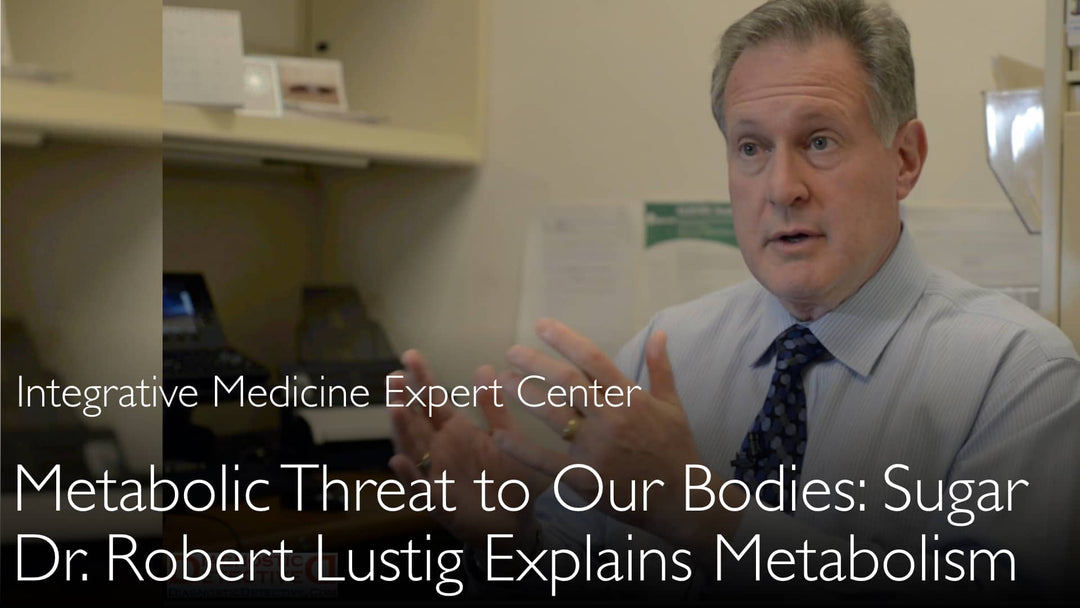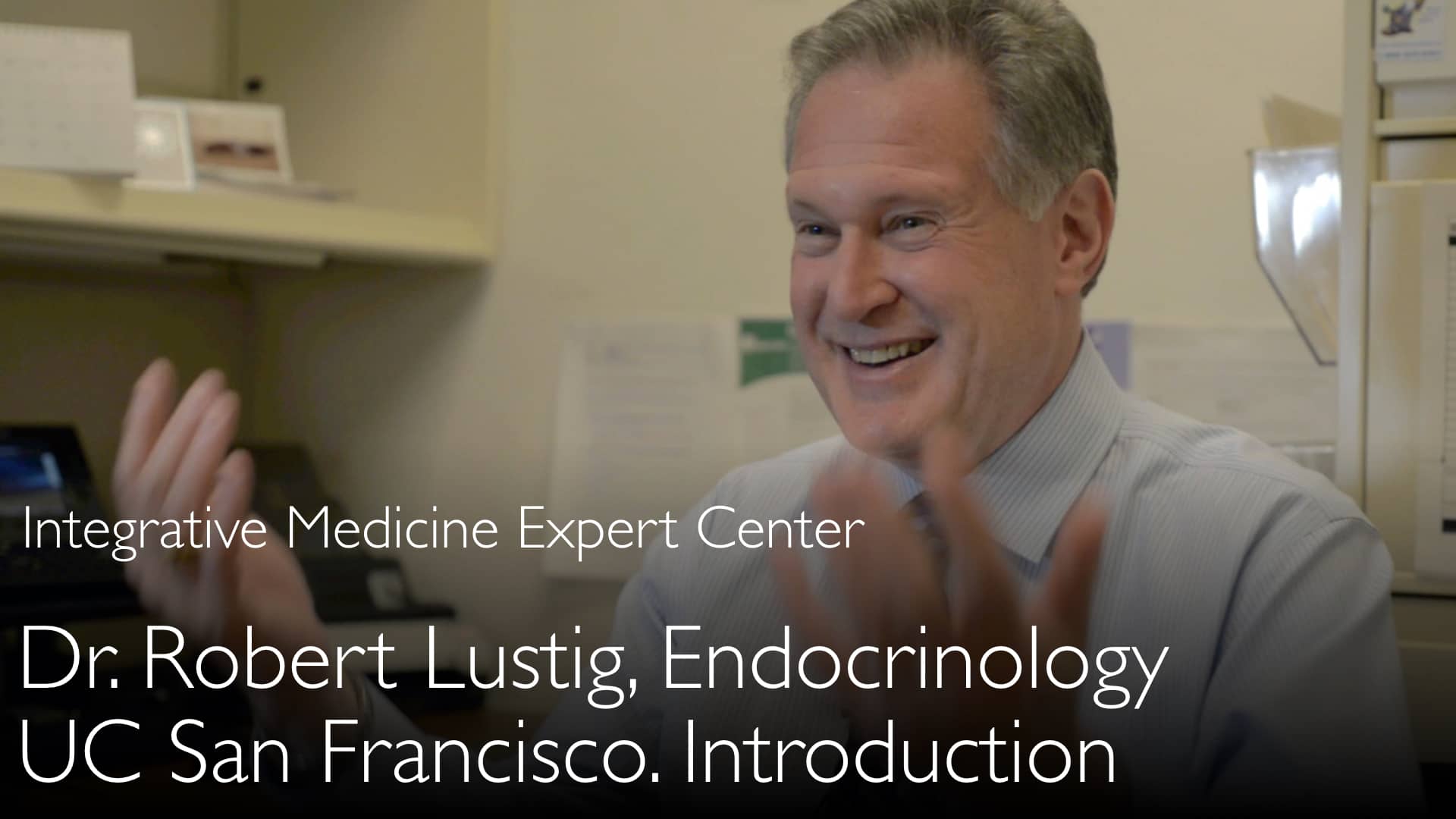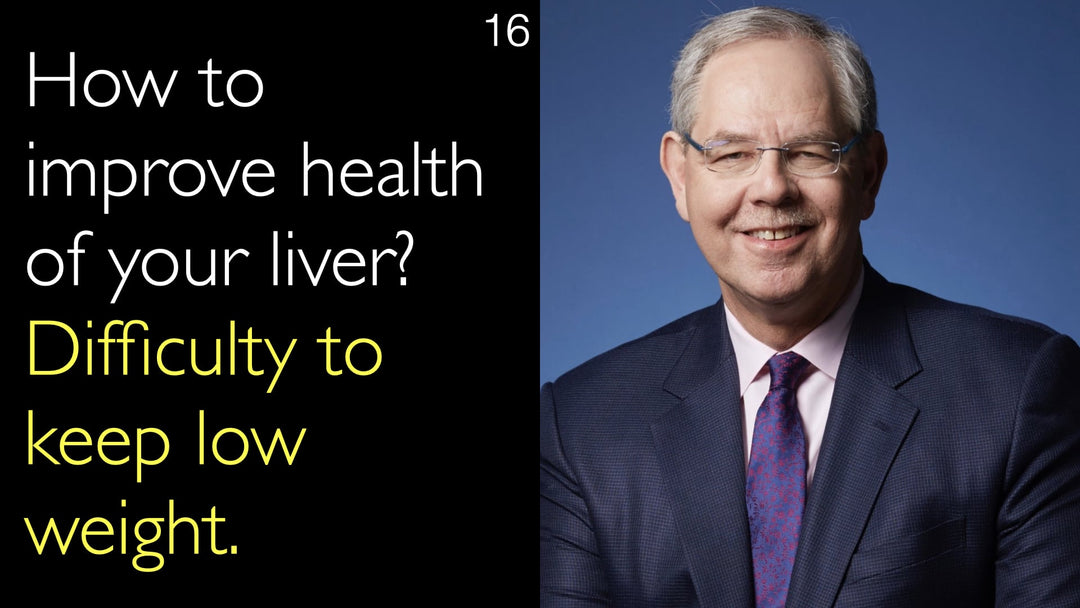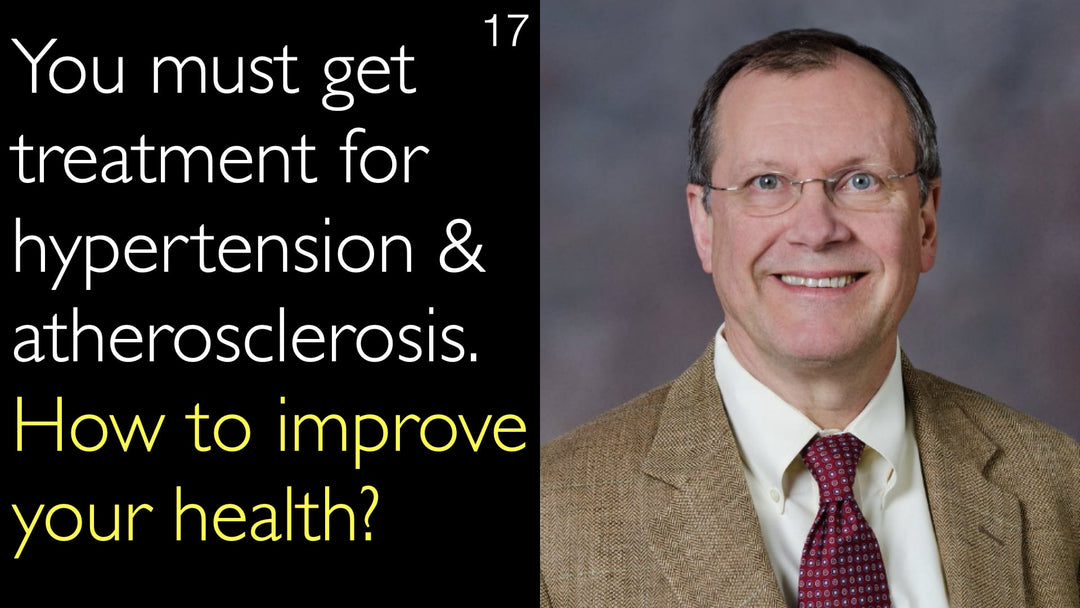מומחה מוביל באנדוקרינולוגיה ותזונה ילדים, ד"ר רוברט לוסטיג, MD, מסביר כיצד התמכרות לסוכר משבשת את האיזון המטבולי של הגוף. הוא מפרט את התפקידים הקריטיים של לפטין ואינסולין, וחושף כי צריכת סוכר עודפת חוסמת את תפקוד הלפטין, מה שמוביל לרעב מתמיד ואגירת שומן. התמוטטות זו, שהחלה לפני 35 שנה בשל דיאטות מזון מעובד, היא גורם מרכזי לתסמונת מטבולית, סוכרת והשמנת יתר. ד"ר לוסטיג מבהיר את שני המצבים הטבעיים של אינסולין גבוה בחיים ומדוע התכנות האבולוציוני שלנו הופך אותנו לפגיעים לתכונות הממכרות של הסוכר בסביבת המזון המודרנית.
הבנת התמכרות לסוכר: חוסר איזון הורמונלי, גורמים והשלכות מטבוליות
קפיצה לסעיף
- חוסר איזון לפטין ואינסולין
- תכנות אבולוציוני לסוכר
- שני מצבי אינסולין גבוה תקינים
- השפעת דיאטת מזון מעובד
- השלכות על הבריאות המטבולית
- שבירת ההתמכרות לסוכר
- תמלול מלא
חוסר איזון לפטין ואינסולין
ד"ר רוברט לוסטיג, MD, מזהה קונפליקט הורמונלי בסיסי כגורם המרכזי להתמכרות לסוכר. ההורמון לפטין, שמאותת שובע ושריפת אנרגיה תקינה מתאי השומן למוח, נחסם על ידי רמות גבוהות של אינסולין. המחקר של ד"ר לוסטיג מראה שאינסולין, הורמון אגירת האנרגיה, לא רק מקדם עלייה במשקל אלא גם אומר למוח להישאר רעב ולאכול יותר. תגלית זו מסבירה מדוע מערכת האיזון האנרגטי העדינה של הגוף, שפעלה במשך אלפי שנים, נכשלה בפתאומיות לפני כ-35 שנה.
תכנות אבולוציוני לסוכר
האבולוציה האנושית תכנתה העדפה טבעית לטעמים מתוקים כמנגנון הישרדות. ד"ר רוברט לוסטיג, MD, מסביר שמתיקות הייתה אות אמין לאבותינו שמזון בטוח לאכילה ולא רעיל באופן מיידי. אמון מולד זה במוצרים מתוקים עודד צריכה של פירות בשלים בעת הקציר, ואיפשר לגוף לבנות מאגרי שומן קריטיים להישרדות בתקופות רעב או חורף. בעולם המודרני, תכנות אבולוציוני מושרש זה מנוצל על ידי מזונות שופעים ומלאי סוכר, המובילים ישירות לדפוסי צריכה ממכרים.
שני מצבי אינסולין גבוה תקינים
ד"ר רוברט לוסטיג, MD, מבהיר שיש שני שלבי חיים ספציפיים וטבעיים בהם אינסולין גבוה ועלייה במשקל subsequent הם הכרחיים ביולוגית. מצבי אינסולין גבוה these הם גיל ההתבגרות והריון. במהלך גיל ההתבגרות, עלייה במשקל נדרשת כדי שהגוף יהפוך כשיר רבייתית. בהריון, עלייה במשקל חיונית לבריאות האם והעובר המתפתח. בהקשרים these, העובדה שההורמון הגורם לעלייה במשקל (אינסולין) קשור לאות לאכול more (חסימת לפטין) הגיונית לחלוטין מבחינה אבולוציונית להישרדות המין.
השפעת דיאטת מזון מעובד
דיאטת המזון המעובד המערבית היא הגורם הראשוני לאינסולין גבוה כרוני מחוץ לגיל ההתבגרות והריון. ד"ר רוברט לוסטיג, MD, קובע שתעשיית המזון learned להוסיף סוכר—"ה-hook"—למוצרים because אנחנו מתוכנתים אבולוציונית לאהוב it. פרקטיקה this intensified עם האימוץ הנרחב של דיאטות דלות שומן, מכיוון שסוכר נוסף frequently כדי לפצות על טעם שאבד. התוצאה היא סביבת מזון where צריכת סוכר היא constant, והופכת what שהיה פעם פינוק מזדמן למה שד"ר לוסטיג משווה ל-"6 קינוחים ביום", ויוצרת עונת קציר תמידית that disrupts מטבוליזם.
השלכות על הבריאות המטבולית
צריכת סוכר מתמדת has השלכות חמורות על הבריאות המטבולית. ד"ר רוברט לוסטיג, MD, מקשר directly התמכרות לסוכר להתפתחות תסמונת מטבולית, סוכרת מסוג 2, יתר לחץ דם ודיכאון. על ידי הגברת אינסולין כרונית, סוכר "מרמה" את הגוף into להאמין שהוא needs לאגור שומן continuously. תהליך this פוגע בכבד, מקדם תנגודת לאינסולין, ומוביל לדלקת system. ד"ר אנטון טיטוב, MD, מדגיש את החשיבות של הבנת mechanisms these כדי לחפש treatment יעיל diagnosis מאושר through חוות דעת רפואית שניה.
שבירת ההתמכרות לסוכר
התגברות על התמכרות לסוכר requires התייחסות לגורם השורש: הפחתת רמות האינסולין. ד"ר רוברט לוסטיג, MD, indicates that האסטרטגיה היעילה ביותר היא לאכול פחות סוכר ולהפחית צריכה של פחמימות מזוקקות. this מאפשר ל-leptin לתפקד properly again, ומחזיר את יכולת המוח לקבל אותות שובע לווסת את מאזן האנרגיה. ד"ר אנטון טיטוב, MD, notes that חוות דעת רפואית שניה can להיות invaluably ליצירת תוכנית treatment אישית ויעילה כדי לשבור את מעגל ההתמכרות, לנהל השמנת יתר, ולהפוך conditions מטבוליות associated.
תמלול מלא
ד"ר אנטון טיטוב, MD: גורמים להתמכרות לסוכר נסקרים בראיון וידאו this על ידי אנדוקרינולוג ומומחה תזונה prominent. כיצד סוכר גורם להתמכרות? כיצד לפטין ואינסולין interact כדי לשמור על גוף האדם healthy? מהם שני מצבי אינסולין גבוה תקינים בחיי האדם?
גורמי התמכרות לסוכר יוצרים חוסר איזון בין אינסולין ללפטין. אנשים מכורים לסוכר because of תכנות אבולוציוני. אולי זה מתוק, so זה בסדר לאכול. מה גורם להתמכרות לסוכר במתבגרים? מדוע סוכר started לגרום להתמכרות widespread לפני 35 שנה? סוכר הוא ה-hook. how לשבור התמכרות לסוכר? אכילת פחות סוכר helps.
סוכר required when שומן has להצטבר. התמכרות לסוכר causes יתר לחץ דם ודיכאון. אגירת שומן during גדילת הגוף בשנות הנעורים היא necessary. אגירת שומן also required בהריון. סוכר causes הגוף לחשוב שהוא needs לאגור שומן all the time. מזונות דיאטה מערבית stuffed עם עודף סוכר.
ראיון וידאו this הוא עם מומחה leading באנדוקרינולוגיה pediatric ותזונה. חוות דעת רפואית שניה confirms that diagnosis התמכרות לפרוקטוז היא correct ו-complete. התמכרות לסוכר causes תסמונת מטבולית וסוכרת. חוות דעת רפואית שניה also confirms that treatment התמכרות לפרוקטוז required. It helps לבחור את treatment הטוב ביותר עבור התמכרות לסוכר פרוקטוז.
קבל חוות דעת רפואית שניה על התמכרות לפרוקטוז סוכר והיה confident ש-treatment שלך הוא הטוב ביותר. קבל חוות דעת רפואית שניה על השמנת יתר. הבן causes התמכרות לסוכר והתגבר על them effectively.
ד"ר אנטון טיטוב, MD: You conducted יותר מ-20 years של research specifically על התמכרות לסוכר. What מצאת להיות הבעיה?
ד"ר רוברט לוסטיג, MD: השאלה הגדולה היא, why יש לנו מערכת מאזן אנרגיה very מעודנת בגופנו? היא נקראת לפטין. זה הורמון that goes מתאי השומן שלך לתאי המוח. It says, "You know what? I have eaten enough. I don't need to eat so much. I can burn energy at a normal rate."
הורמון הלפטין worked במשך hundreds of thousands of years באבולוציה של vertebrates. It worked just fine until about 35 years ago. Then all of a sudden, leptin stopped working. השאלה היא, why זה קרה? why לפטין stopped working? What happened that all of a sudden leptin stopped doing its job?
That's been ה-research שלי for the last twenty years or so, since leptin was discovered. We have learned through clinical investigation and through other people's basic science work that a different hormone blocks leptin's functioning. It is called insulin.
אינסולין הוא הורמון אגירת האנרגיה. אינסולין makes you gain fat. אינסולין takes whatever is in your bloodstream and puts it in fat for storage. It turns out that the hormone that causes weight gain is the same hormone that tells your brain you need to eat more. That is why you can gain the weight.
השאלה היא, why? why would nature do this to us? התשובה היא because there are two times in your life when you actually have to gain weight. It is puberty and pregnancy. Both of these states are high insulin states. This is on purpose.
In order to go through puberty, you need to gain weight. In order to become reproductively competent, you have to gain the weight. In order to be able to be pregnant, you have to gain the weight. Otherwise, the species dies out.
Does it not make sense that the same hormone that causes weight gain would be the same hormone that tells your brain, "I'm still hungry, eat more"? The fact that these two phenomena are linked together makes perfect sense. Twice in your life.
But what about the rest of the time? Sometimes you're not in puberty and you are not in pregnancy. Why should your insulin be high? That's where our Western diet comes in.
Over the course of the last 10 years, I understood the problem. It has become painfully obvious to me. The primary driver of all this excess insulin is our processed food diet. Specifically, a diet full of refined carbohydrate and sugar.
סוכר הוא, shall we say, ה-hook. סוכר הוא ה-item that תעשיית המזון adds to the food to get us to buy more because we love it. Everyone loves it! In fact, it's programmed into our DNA to love it.
There are no foodstuffs on the planet that are both sweet and acutely poisonous. This was the signal to our ancestors. They could consume something and not worry about being poisoned and dying. If it's sweet, it's okay to eat! At least acutely.
On any given meal, a sweet meal is fine; a dessert is fine. We are programmed by evolution to trust these sweet products. This sweet product helps build adipose stores. It builds fat stores.
They are there very specifically to help you get through till the next meal or potentially till the next season, like, for instance, winter. Doesn't it make sense that at harvest time we have lots of sugar available in the form of mature fruit? Then we go into hibernation.
It could be famine due to winter. We can actually store up the energy. We have enough nutrients available until next spring. This all made evolutionary sense until thirty-five years ago.
Then our food supply became glutted. Our food supply became absolutely and completely overrun with excess sugar. Very specifically, it happened because the food industry learned that we loved sugar. The second reason is because we all went low-fat.
ד"ר אנטון טיטוב, MD: עונת קציר every day.
ד"ר רוברט לוסטיג, MD: Absolutely! 24/7, 365 days a year, every single day. Normally we might have one dessert a week. Now we have six desserts a day in terms of the amount of sugar consumed.








